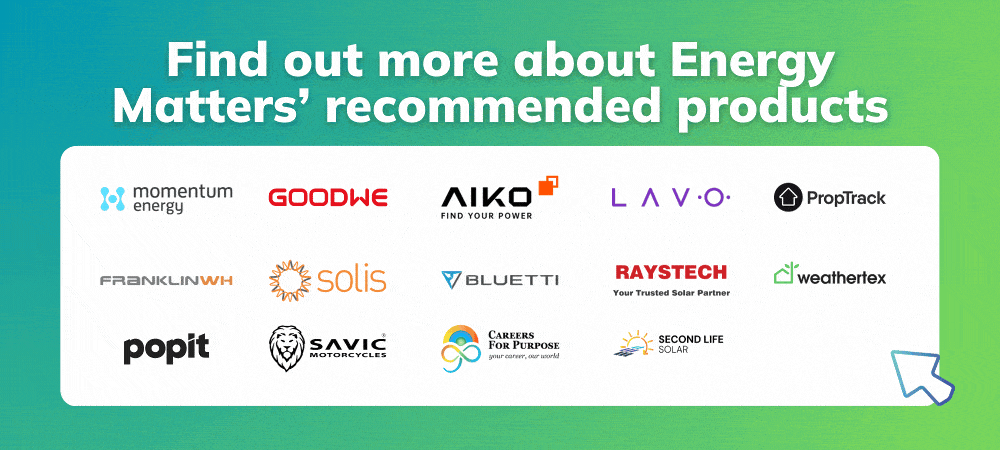Solar Feed-in Tariffs (FiTs) are government-mandated programs that require electricity retailers to purchase excess electricity generated by solar PV systems from their customers at a guaranteed rate. FiTs aims to encourage the adoption of renewable energy sources, such as solar power, by providing financial incentives for individuals and businesses to install solar panels on their property.
The Australian Capital Territory (ACT) solar feed-in rate is not regulated, unlike in other states such as Victoria. It is a voluntary scheme that is up to the ACT’s electricity retailers.

On this page
Did you know Energy Matters is Australia’s largest renewable news, blog and educational resource? Subscribe to Energy Matters’ weekly newsletter and keep updated even with incentives, rebates and recommended solar product offers.
Eligibility of ACT solar feed in tariff
Individuals and businesses must meet certain requirements to qualify. These include installing an eligible solar panel system on their property and connecting to the grid. The size of the solar panel system must also be appropriate for the size of the property and the amount of electricity being consumed.
The ACT government determines the rate at which electricity retailers purchase excess solar energy. The rate is reviewed periodically to ensure that it remains fair and reasonable for both consumers and electricity retailers.
Benefits of the ACT solar feed in tariff
One of the main benefits of the solar feed-in tariff is that it provides a financial incentive for individuals and businesses to invest in renewable energy technologies. Individuals and businesses can offset the cost of installing solar panels and other renewable energy systems by earning credits on their electricity bills for the excess solar energy they generate.
The feed-in tariff is an important step towards increasing the use of renewable energy in the ACT and promoting a more sustainable future. It provides a financial incentive for individuals and businesses to invest in renewable energy technologies while helping the environment and reducing reliance on fossil fuels.
Comparison by retailers in ACT
After years of ActewAGL’s monopoly, Canberra residents now have a variety of electricity retailers from which to choose.
| RETAILERS | MIN SOALR FiT | MAX SOLAR FiT |
| Origin Energy | 5.0c | 10.0c (for the first 8kWh/day, 5.0c thereafter) |
| Nectr | 8.94c | 8.94c |
| ActewAGL | 6.0c | 6.5c |
| ACT MAJOR RETAILERS | MIN SOLAR FiT | MAX SOLAR FiT |
| Energy Locals | 7.0c (for the first 8kWh/day, 3.0c thereafter) | 7.0c (for the first 8kWh/day, 3.0c thereafter) |
| CovaU Energy | 0c | 0c |
| EnergyAustralia | 5.0c | 10c (for the first 12kWh/day, 5.0c thereafter) |
| Red Energy | 4.0c | 4.0c |
| Amber Electric | 0c (estimated based on wholesale prices) | 0c (estimated based on wholesale prices) |
Energy Matters is one of Australia’s most trusted solar quotes due to our high customer satisfaction and industry recommendations. Our team of solar experts can help you get up to 3 FREE solar quotes from pre-qualified and vetted solar firms in your area. Let’s harness the power of the sun together!
Fortunately, ACT electricity suppliers compete fiercely, so expect a solar feed-in tariff to be quoted. The average feed-in credit is approximately 7 cents per kilowatt-hour (kWh). If you’re not careful, the rate can be as low as 0 cents per kilowatt hour, with other companies offering little more than 7 cents. As always, while shopping for electricity retailers, it’s important to compare the terms of the offer, not just the feed-in tariff.
For those interested in comparing other states, you may find the following resources helpful:















































